Palmetto Bluff Real Estate Company Sales Office
Office Hours
Monday-Friday 9am - 5pm
Saturday 9am - 4pm
Sunday 12 - 4pm
Saturday 9am - 4pm
Sunday 12 - 4pm
The history of mankind, who we are and what we’ve accomplished, begins with metal. It begins in the very first forges, and the very first brilliant sculptor who dared to get close enough to the flames to take the elements of the earth itself and bend them to his will.
That might seem grandiose, but it’s still true. The act of ripping the raw material from the soil, holding it to the flames until it glows like the angry core of a volcano, then shaping it while it still burns, molding it with brute strength and the relentless blows of a hammer, quite literally made us who we are.
This one innovation lifted us from the Stone Age, as these sculptors forged bronze ore into the tools we used to farm and leave our nomadic lifestyle behind. They would also create the metals we used to make for sculptures, works of art that have survived millennia. These pioneering blacksmiths eventually traded bronze for iron and steel, creating more durable and everlasting works from the earth and shaping mankind’s advancement along the way.
 As for Michael Waller and Kirk Davis, co-creators of Carolina Shuckers, eventually they would bring this act of creation full circle, taking a finished product, say, a railroad spike, and turning it into something even more useful to mankind: an oyster knife.
As for Michael Waller and Kirk Davis, co-creators of Carolina Shuckers, eventually they would bring this act of creation full circle, taking a finished product, say, a railroad spike, and turning it into something even more useful to mankind: an oyster knife.
You might argue that lifting mankind out of the Stone Age and creating timeless works of art are more important than having the coolest-looking knife at the oyster roast. To which we would respond: “You’re not from around here, are you?”
And while the methods and techniques may have been refined somewhat since that first ingenious blacksmith molded bronze over wood flames, there are two ingredients that have linked every piece of metalwork from ancient Egypt to the wickedly twisted works of functional art coming out of the dual forges of Carolina Shuckers:
“A lotta heat and a lotta hard work,” said Davis.
Davis and Waller combine those two elements into a host of extraordinary creations at Carolina Shuckers. There are the aforementioned railroad-spike-turned-oyster-knives, cleverly named the Mother Shucker, Mama’s Boy and Cluster Shucker (“We had to come up with names to differentiate them; we figured we might as well have fun with it,” joked Waller). There are also oyster knives forged from solid bars of carbon steel, hammered to a fine edge and twisted to an ergonomic and stylish diamond design.
Then there are the pigtails, meandering slivers of metal that end in a curved point designed to flip your steaks with skill and precision. And then there are the bottle openers, if you really feel like owning the spotlight at the next oyster roast.
And each of these magnificent pieces is handmade by either Davis or Waller, and stamped with their name to prove it. While the two live roughly 180 miles apart – Waller in Hillsborough, N.C., Kirk in Morgan City, N.C. – the distance does nothing to dilute their shared artistic vision or weaken a lifelong friendship tempered as strong as steel.
“We’re like brothers,” said Waller. “We can go months without talking and then fall right back into place and everything’s fine.”
Their brotherhood began as children growing up together in Kinston, N.C., a small town made famous by the PBS series “A Chef’s Life” (“We made a knife for them,” noted Waller). Best friends through high school, they followed one another through community college then to East Carolina, where they both graduated with degrees in sculpting.%GALLERY%After graduation, the pair admits that they drifted apart, each pursuing their art down separate paths. But their shared love of sculpture and oyster culture assured they would never stray too far.
Each forged his destiny separately, until the bottom dropped out of the economy and the two found a lifeline in each other.
 “In 2009 the economy was tanking, and the sculpture and architectural metalworking work sort of dried up. We both said ‘What can we do?’” said Waller. The answer came, as all great answers do, over a muddy table of oysters. In between their work as artists and sculptors, Waller and Davis dabbled in oyster knives for fun to try and see who could bring the coolest knife to the next oyster roast.
“In 2009 the economy was tanking, and the sculpture and architectural metalworking work sort of dried up. We both said ‘What can we do?’” said Waller. The answer came, as all great answers do, over a muddy table of oysters. In between their work as artists and sculptors, Waller and Davis dabbled in oyster knives for fun to try and see who could bring the coolest knife to the next oyster roast.
Waller explained, “I went to Kirk and said ‘Why don’t we come up with four designs and try to market this thing and see how it goes?’”
It went, to put it mildly, very well.
The pair came up with four designs and debuted them at the Eastern Carolina Waterfowl Festival in Little Washington, N.C. In three days, they sold $2,000 worth of knives.
“We knew it was a big hit when people were lined up to buy them from us. That was kinda cool,” said Davis.
For two artists, the sudden and unexpected success of something they made just as a demonstration to each other was completely unknown territory. But as the saying goes, you have to strike when the iron is hot.
“Coming from this background, knowing these festivals, we didn’t really want to do them at first,” said Waller. “We didn’t want to be in production art anyway, but it just kind of took over. We did Charleston, a few more and couldn’t keep up.”
After that, according to Waller, it started snowballing. Waller’s wife built them a simple website overnight, and almost right away they got their first order. From California.
“I asked him ‘How did you even find us?’ He told me he just typed ‘custom oyster knives’ and we were the only thing that came up,” said Waller.
 Pioneers in what has since grown into a cottage industry, Carolina Shuckers soon found their hobby turned into big business, with products in 26 retail stores, partnerships with Orvis and Rogue Brewing, and even a nod from Martha Stewart, whose Martha Stewart Living site nominated them for an American Made award in 2013.
Pioneers in what has since grown into a cottage industry, Carolina Shuckers soon found their hobby turned into big business, with products in 26 retail stores, partnerships with Orvis and Rogue Brewing, and even a nod from Martha Stewart, whose Martha Stewart Living site nominated them for an American Made award in 2013.
For such a lofty enterprise, you’d never know it started with two friends trying to outdo each other at the oyster table.
“We never really expected that we were going to make oyster knives,” said Waller.
And now, while the pair still pursue their dreams as sculptors, they just happen to run this wildly successful business together. What’s fascinating is how these two lifelong friends each maintain their distinctive style under the banner of Carolina Shuckers.
As an example, Davis uses a torch to soften each piece between firings, allowing him to add his signature “acid twist” to each piece. The result is a snazzy looking set of back-and-forth switchbacks, running the length of the handle.
Waller, on the other hand, takes the more utilitarian approach. Using a special tool and a vintage 1942 pedal-powered hammer, he adds his signature thumbprint to each knife, letting your hand get the perfect purchase on the blade when you wrestle with that unwieldy shell.
“I could do his style, he could do my style, but it wouldn’t be the same,” said Waller.
That dedication to technique is a big part of what sets Carolina Shuckers apart. As much as they’ve grown, they are still able to operate as a small business, offering a lifetime guarantee and a hands-on approach that few others can.
“I have each piece in my hand six or seven times before it’s in the bag,” said Waller. “If there’s something wrong, we can fix it before it goes out.”
That same dedication to the customer extends to the craft itself. Friends in the industry and at trade shows and festivals have hounded the pair to start outsourcing, to the let foundries in China and Mexico build their blades cheaper and faster. Thankfully, these two lifelong friends have resisted, knowing that cheaper and faster would come at too steep a price.
“We’re artists,” said Waller. “And this is what we do. This is how we make a living. I don’t mind doing the work.”
Written by Barry Kaufman
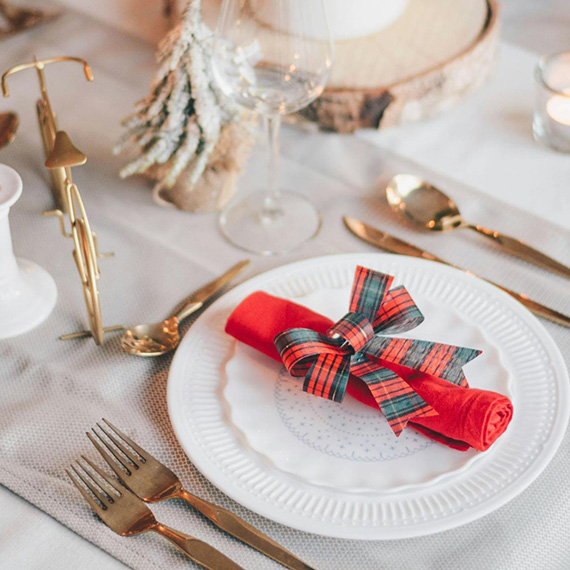
Warm, fragrant, and deeply comforting, Chef Beth’s Southern Sausage & Sage Stuffing is a holiday classic that brings together rich pork sausage, fresh herbs, and toasted bread for the ultimate savory side dish. Studded with green apples and aromatic vegeta...
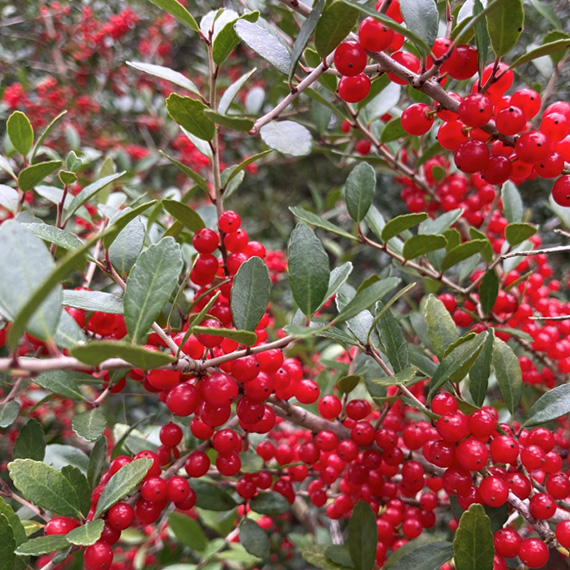
As December settles over Palmetto Bluff, it brings softer light, cooler mornings, and the natural beauty of native evergreens and winter berries that define the Lowcountry landscape. Palmetto Bluff Conservancy’s Education and Outreach Manager, Aaron Palmieri, ...

In 2025, Palmetto Bluff welcomed new neighbors and old friends, groundbreakings, and long-awaited openings. From inspired Club gatherings and elevated programming to the creation of our latest golf course, the year was defined by connection and excitement for ...
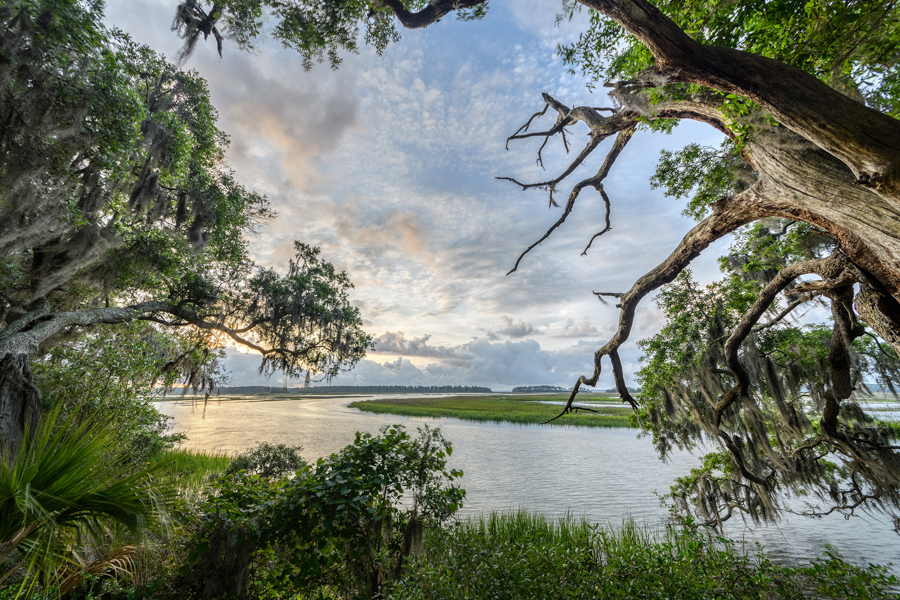
There is something serene about waking up to shimmering water, the stillness of the woods, or the sweep of marsh and sky right outside your window. Even without stepping outside, science shows that simply seeing nature from home can meaningfully improve mental...
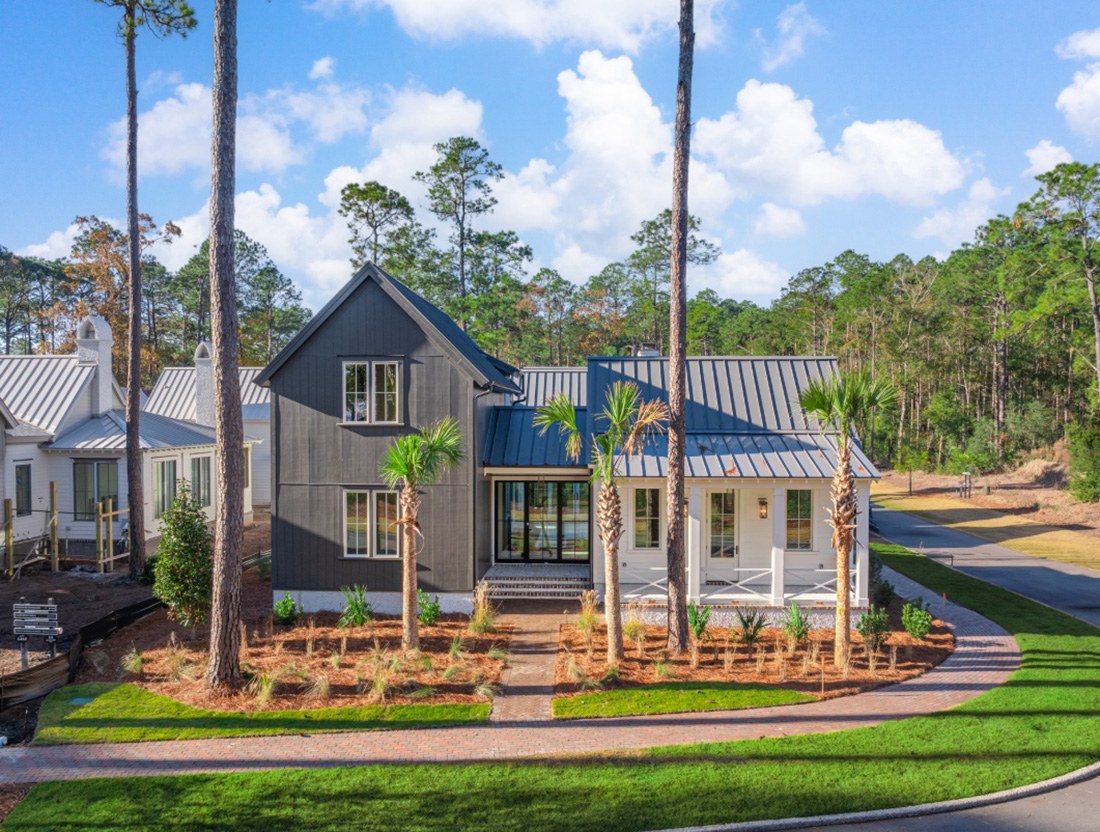
The Ultimate Choice: Building vs Buying a Home in Palmetto Bluff For those searching for Palmetto Bluff homes for sale, this common question often arises: Should you choose an existing residence, or embrace the opportunity to build your own? While a complet...
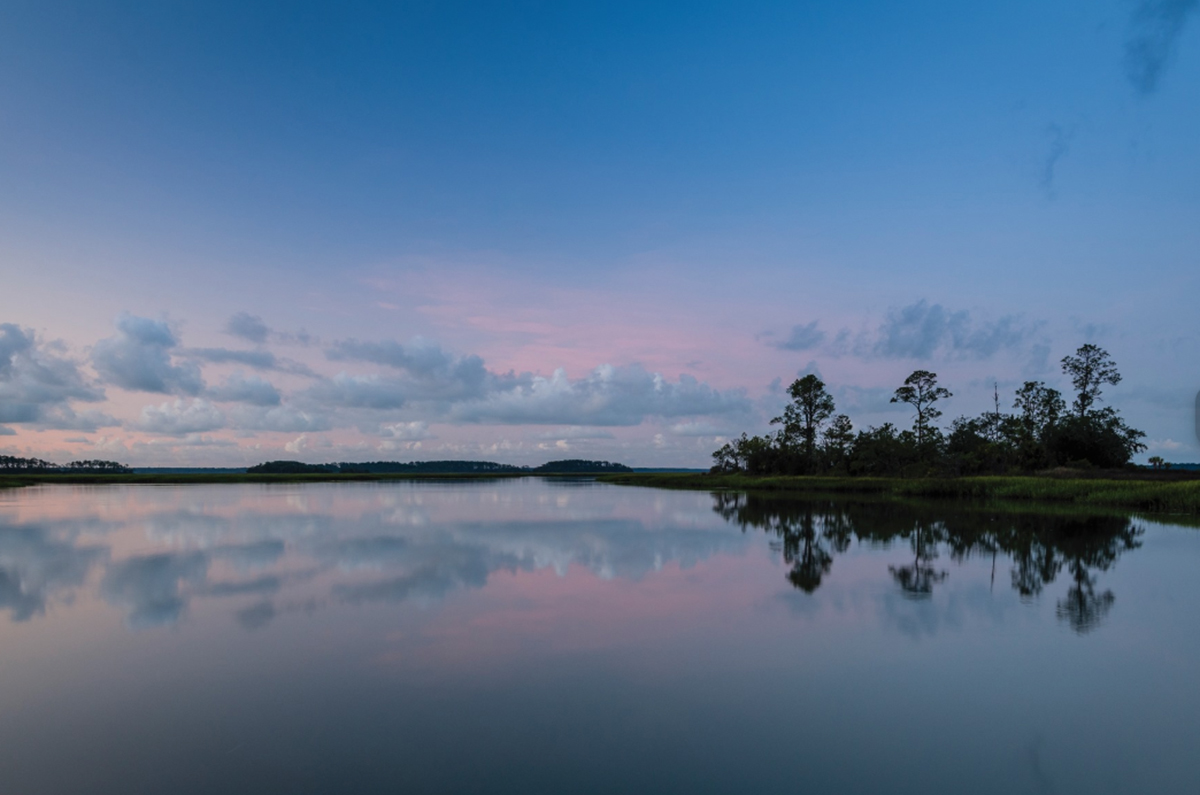
A Complete Guide to South Carolina Winter at Palmetto Bluff South Carolina's winter is unlike any other on the East Coast. While many travelers search for “South Carolina winter” expecting cooler temperatures and limited outdoor options, the Lowcountry revea...

River Road: Where Lowcountry Beauty Meets Elevated Everyday Living Tucked gracefully between Wilson Village and Moreland Village, River Road is one of Palmetto Bluff’s most immersive communities. It's where the pace of life seems to soften, classic Southern ...
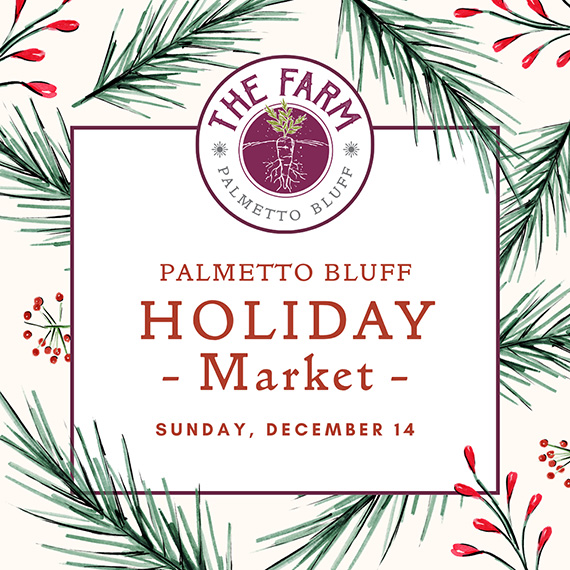
Sunday, December 14 | 9am to 1pmVillage GreenThe season’s most festive farmers market, the Holiday Farmers Market, comes to Wilson Village on Sunday, December 14, from 9am to 1pm. All are welcome to visit and experience the magic of holidays at the Bluff. The ...

Tucked amid whispering pines and overlooking a tranquil water trail, 11 Lyonia Street is where Lowcountry charm meets modern artistry. The newly built residence redefines Southern living with a balance of craftsmanship and calm. This is a home that feels both ...
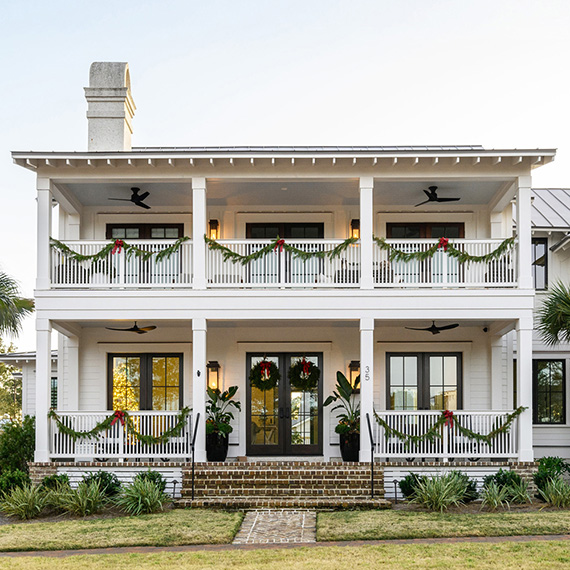
The holiday season in the Lowcountry brings crisp air, oaks draped in twinkling lights, and laughter drifting from homes where families and friends gather once again. At Palmetto Bluff, the holidays are more than just a season; they’re a feeling of togethernes...
We do not attempt to independently verify the currency, completeness, accuracy or authenticity of the data contained herein. All area measurements and calculations are approximate and should be independently verified. Data may be subject to transcription and transmission errors. Accordingly, the data is provided on an “as is” “as available” basis only and may not reflect all real estate activity in the market”. © [2023] REsides, Inc. All rights reserved. Certain information contained herein is derived from information, which is the licensed property of, and copyrighted by, REsides, Inc.